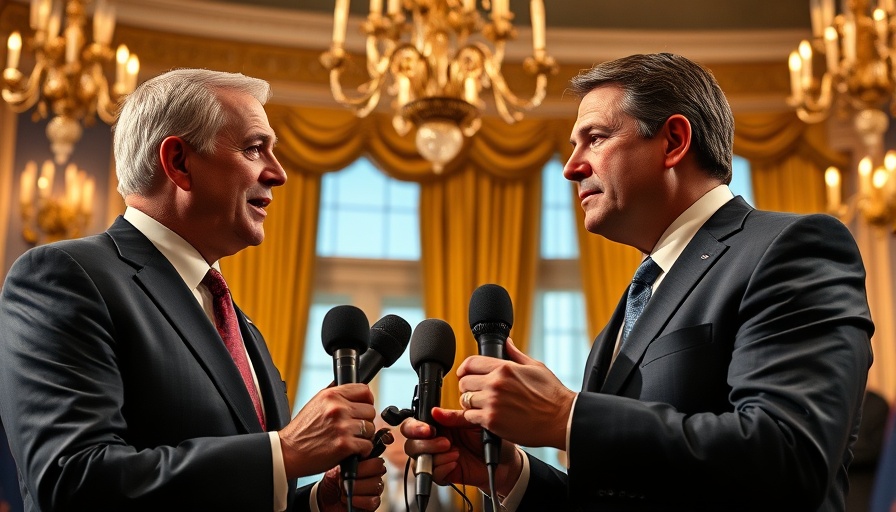
A Unique Meeting of Minds: Trump and Netanyahu
In a highly anticipated press briefing, U.S. President Donald Trump and Israeli Prime Minister Benjamin Netanyahu came together to discuss crucial topics impacting both nations. Such dialogues hold significant weight in shaping national security policies and foreign relations, especially amid ongoing challenges in the Middle East. It provides a focal point for analyzing how these alliances can shape the current global landscape.
In WATCH LIVE: President Trump Holds A Press Briefing With Israeli Prime Minister Benjamin Netanyahu, the discussion dives into crucial U.S.-Israel relations, exploring key insights that sparked deeper analysis on our end.
Context and Importance of U.S.-Israel Relations
The partnership between the United States and Israel is often viewed as a cornerstone of U.S. foreign policy in the Middle East. Such ties carry both historical and strategic significance. The enduring relationship can be traced back to shared democratic values and mutual interests, which can serve as a basis for ongoing collaborations, particularly in defense and counter-terrorism efforts.
The Impact on National Security
Discussions revolving around national security underscore the heightened importance of safeguarding both American and Israeli interests against rising tensions, especially regarding Iran's nuclear ambitions and the general volatility in the region. Engaging in these high-profile conversations allows both leaders to coordinate strategies to mitigate threats, illustrating how closely intertwined their security policies are.
Insights into Current Political Climate
Trump’s approach to Israeli affairs illustrates a confident stride into a complex political environment where domestic legislation, ongoing foreign relations, and international strategy intersect. Tackling current events, such as immigration policy and military support, is crucial as leaders navigate rapidly evolving circumstances.
The Outlook on Future Foreign Relations
The outcomes of these dialogues can often shape the trajectories of other key U.S. international relationships; hence, understanding this briefing provides insights into the future of U.S.-Middle Eastern relations. Analysts are particularly focused on how this might influence potential changes in defense agreements and economic partnerships, particularly at a time when tensions between the U.S. and countries like Iran and Syria remain high.
Social Relevance and Public Opinion
Press briefings such as this one not only provide audiences with specific updates but also reflect broader public sentiment regarding foreign policy decisions. As both leaders address contentious issues such as gun control, healthcare reform, and immigration, the response from their respective publics shapes the narrative that persists in the national dialogue.
Possible Implications for American Democracy
The relationship between Trump and Netanyahu significantly transcends mere diplomacy. Analysts are keenly aware that these dialogues portray a message of unity at a time when American democracy faces various domestic and international pressures. Topics discussed may reverberate through public opinion polling and underscore the ongoing struggle between various political factions within the U.S.
Thoughts on the Future
As the world watches the developments arising from this press briefing, it is critical to ponder the implications of such a January meeting. The future trajectories of both countries will likely hinge on the insights and agreements formed in these discussions, which can have lasting consequences on global dynamics.
Call to Action: Stay Informed
It’s vital to stay abreast of not just these discussions but also their implications on domestic and international fronts. By doing so, citizens can foster a deeper understanding of national and global issues. With evolving narratives emerging from high-stakes meetings, each conversation can serve as a pivot point for policy considerations that impact daily lives. Understanding these connections is crucial for informed citizenship.
 Add Element
Add Element  Add Row
Add Row 



Write A Comment